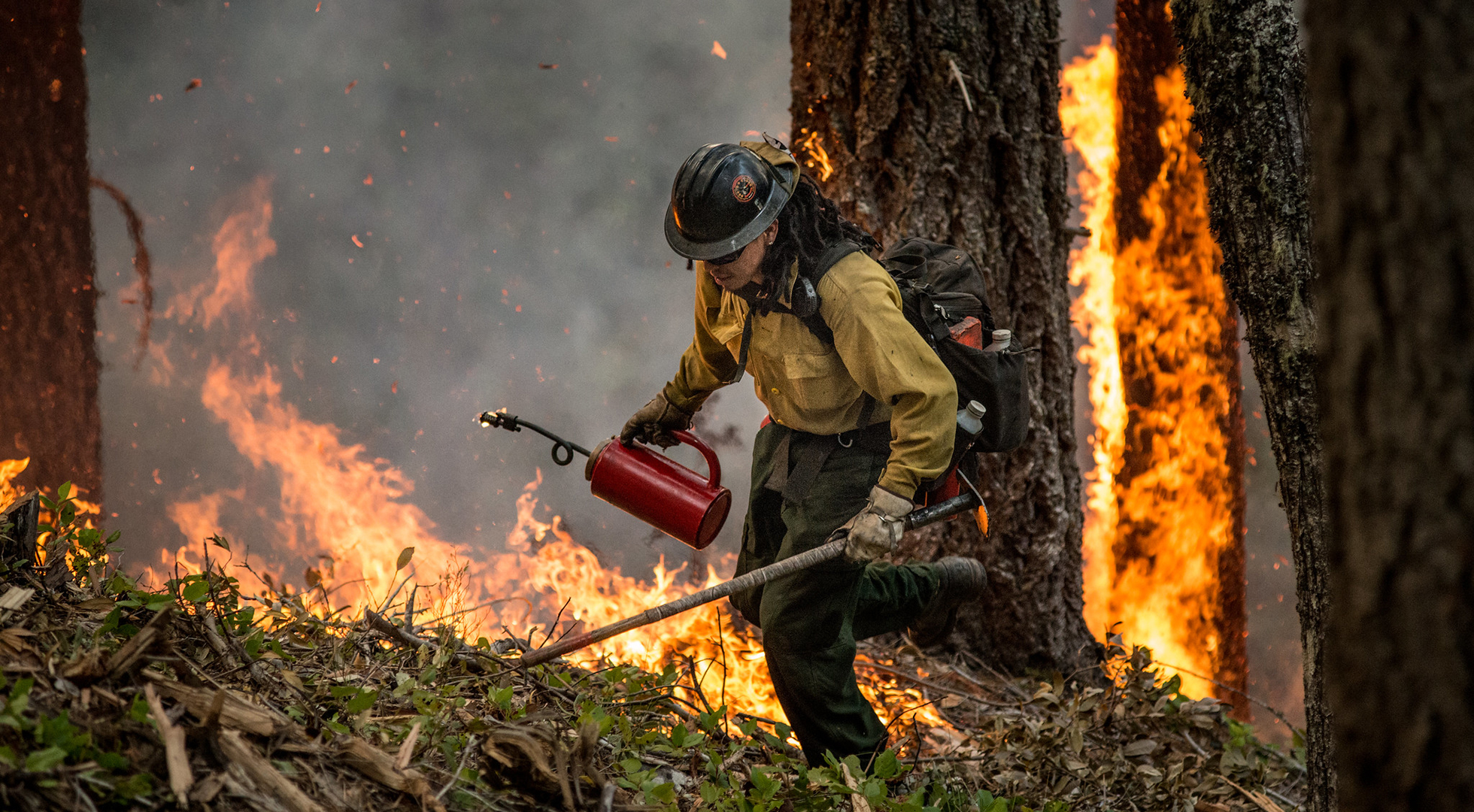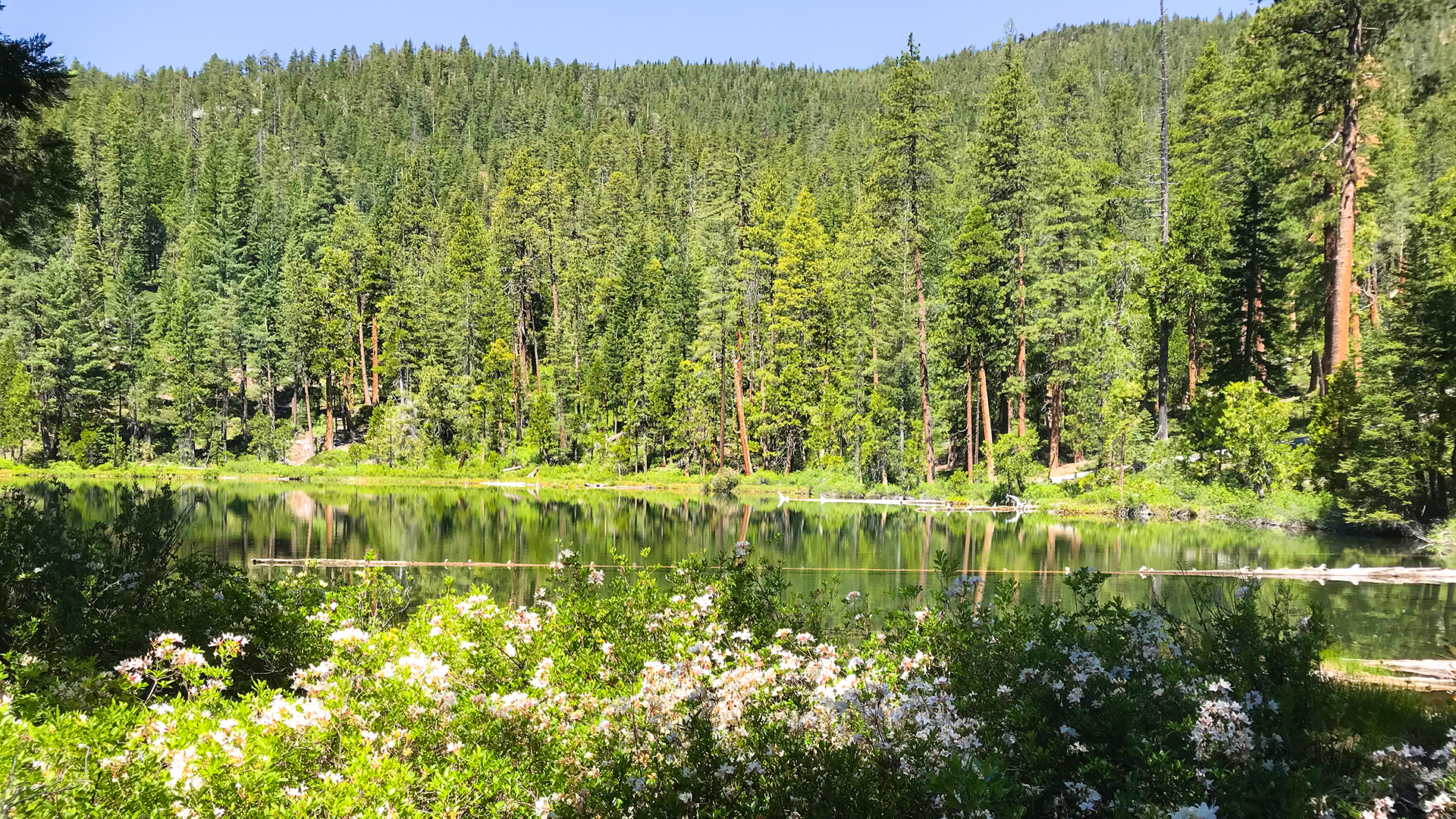FOREST FLASH June 2023
In Pacific Forest Trust’s e-newsletter, Forest Flash, we send you the most recent PFT news and updates on forests, clean water, climate, and wildlife. Subscribe here.

Re-establishing a safer, more natural fire regime through increasing fuels management and prescribed fire is a major goal for PFT. Working with a variety of partners and coalitions, PFT advocates for adequate budgets and new policies that make prescribed burning easier and more affordable. A key bill in California that PFT is urging support for this year is SB 310 (Dodd), which recognizes the sovereignty of California Native American tribes to engage in cultural burning. Building on a new policy from 2022 that enabled cultural burners to use fire without having additional licensed “Burn Bosses,” this bill will remove barriers to cultural burning and encourages it to support cultural practices and community safety.
The bill allows California’s Secretary of Natural Resources to enter into agreements with federally recognized Tribes so that state permitting and regulations are not required. It also requires a working group with numerous agencies and tribes to help shape the framework of the agreements and makes minor technical changes to existing law to ease the expanded use of beneficial fire.
Our landscape in California evolved with fire, including the cultural fire practiced by indigenous Californians for thousands of years. This practice helped shape the landscape and keep our plant communities healthy. It supported the open “park-like” feel and resilience of both conifer and oak forests, brought new growth in grasses for fodder and tools, supported healthy crops of acorns and oak regeneration, and reduced the dangerous build-up of fuels near communities. The state has much to learn from these original fire practitioners as we seek a healthier relationship with fire in California and the West. Allowing sovereign nations to practice their fire-tending culture without layers of state bureaucracy is simple, just, and necessary.
Trinity Headwaters one grant closer!
Sierra Nevada Conservancy grants $1.4M to help ensure completion

On June 1, we were thrilled to be granted $1.4 Million by the Sierra Nevada Conservancy (SNC) towards the acquisition of nearly 11,000 acres in the headwaters of the upper Trinity River, our Trinity Headwaters Working Forest. Located where the Klamath Mountains join the southern Cascades, the property provides views of the Trinity Alps Wilderness to the west, Mount Shasta to the east, Castle Crags to the south and Mount Eddy to the north. The strategic location of the Trinity Headwaters Working Forest connects a mosaic of northern California’s protected lands, filling in significant gaps within the 2.2-million-acre Shasta-Trinity National Forest. Its conservation will create a large contiguous block of protected land within an Essential Habitat Connectivity corridor identified by the California Department of Fish and Wildlife.
This weaving together of private and public lands is critical for wildlife to thrive in the face of climate change. The abundant water and eleven different habitats of Trinity Headwaters Working Forest support an estimated 232 species, including 41 that are rare or threatened, like the Pacific marten, Pacific fisher, California wolverine, Cascades frog, and the Sierra Nevada red fox.
This grant builds on a $2M Community Development federal grant from HUD, secured with the leadership of Congressman Jared Huffman earlier this year (See our January 2023 issue). The project is a partnership with the Watershed Research and Training Center, to which PFT will convey the land, subject to a working forest conservation easement which will guide its restoration-focused management for the benefit of the larger Trinity County and surrounding region.
“I’m proud of how the Sierra Nevada Conservancy is partnering with California tribes and local entities, like irrigation and resource conservation districts, land trusts, and conservation organizations, to find nature-based solutions to some of our region’s most pressing concerns,” said Sierra Nevada Conservancy’s Executive Officer Angela Avery.
Read SNC’s announcement here.
Engaging private landowners in saving wildlife:
30×30, Oregon’s beavers, and private lands
Private voluntary conservation on working forests has a vital role to play in averting the looming collapse of biodiversity. PFT seeks to make it easier and more profitable for landowners to do good things for wildlife. In this vein, we strongly support policies that support maintaining and reintroducing helpful native species. One such species is the historically maligned and still hunted beaver. Nature’s “system engineer,” the beaver is the most effective and least expensive water manager, and re-establishing them widely across ownership, both public and private, is a key step in restoring resilience to our landscapes. Oregon looks close to passing an important bill, HB 3464 (Marsh), that will facilitate the return of the beaver to more of its home range in the state. This bill just had its third reading in the Senate and is on its way to the Governor’s desk. Oregonians can share their support and urge the Governor to sign the bill by submitting a comment here.
PFT’s leadership in showing new and effective ways for working forests to support wildlife was highlighted in a webinar convened by the California Natural Resources Agency’s (CNRA) Pathways to 30×30 as a compelling and direct solutions example. You can view it here (PFT’s work is at time mark 17:46).
In the webinar, we discussed how increasing voluntary conservation easements on private working forests (the ecosystem that is home to more threatened species than any other) is essential to helping the state meet its goal to conserve 30% of California’s lands and coastal waters by 2030. We highlighted several projects focusing on our work in the 7-million-acre Sacramento River Headwaters Region. The projects illustrate how our approach works for landowners large and small, leverages landowner stewardship, and benefits biodiversity, water security, and climate change through conserving well-managed forests.
ICYMI
In case you missed it (ICYMI), here are some other exciting things PFT has been involved in lately!
-
PFT President Laurie Wayburn and Forest Fete featured speaker Leila Philip were guests on KQED’s California Report podcast in an episode titled “Beaver Seen As Climate-Saving Creature In California.“
-
Two of our favorite professors, PFT Board member Jerry Franklin and recent Board member Norm Christenson shared their wisdom via Politico about the importance of forests in maintaining our planet’s health.
-
Yesterday, the Oregon House voted to pass HB 3409, part of a “Climate Resilience Package” that will unlock billions in federal funding for crucial climate action. It now moves to the Senate floor. Oregon subscribers can urge their Senators to vote YES on HB 3409 here.
Give with confidence. Charity Navigator awarded Pacific Forest Trust a perfect score in finance and accountability.

